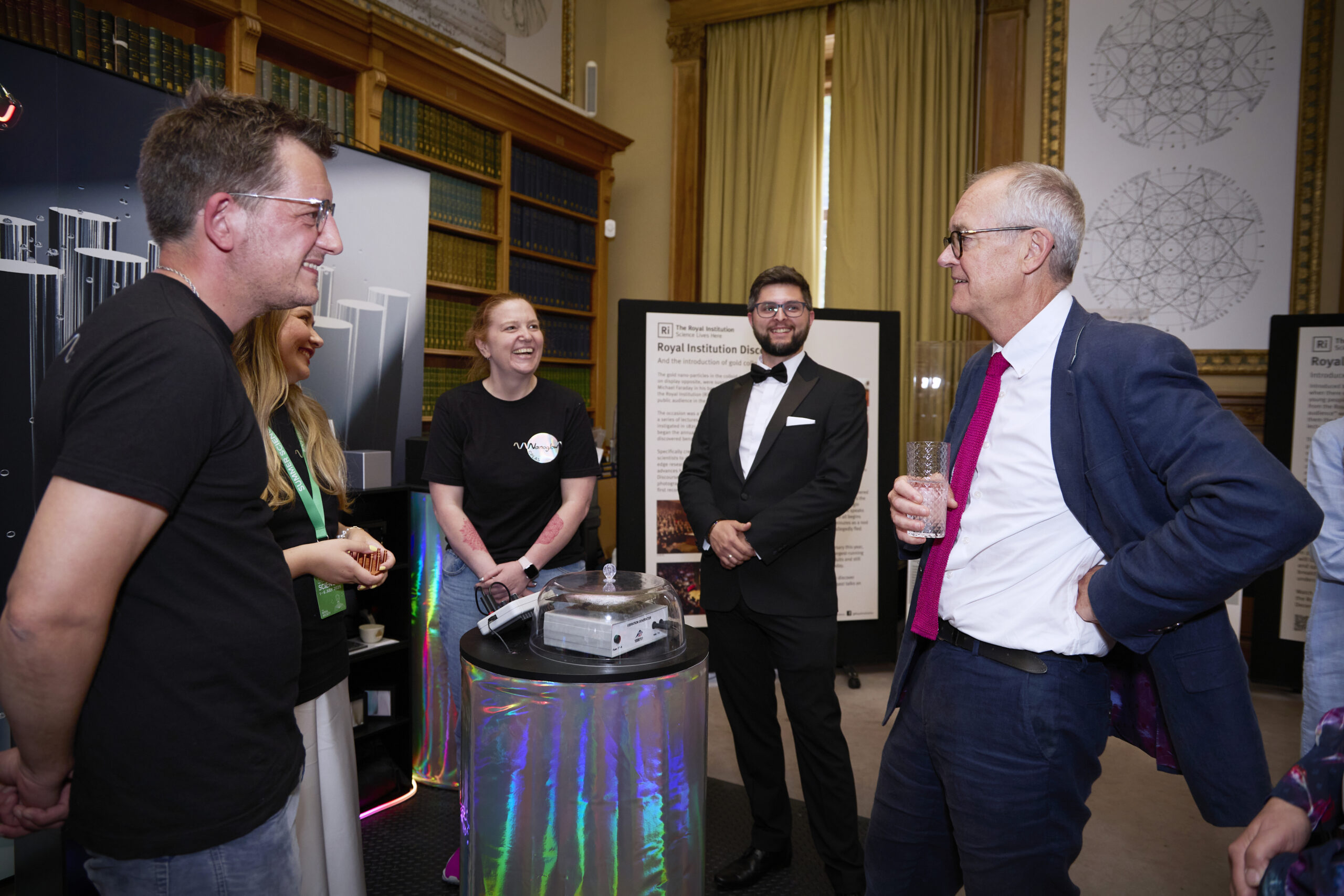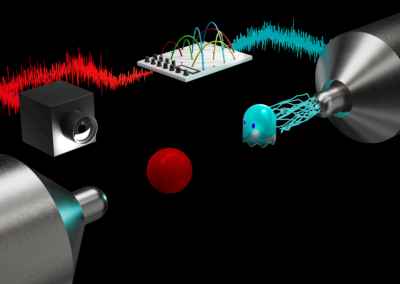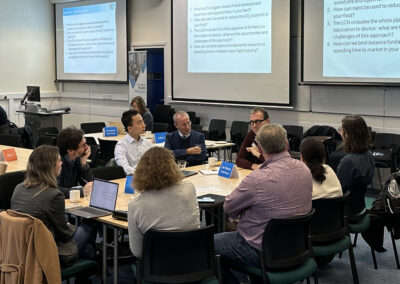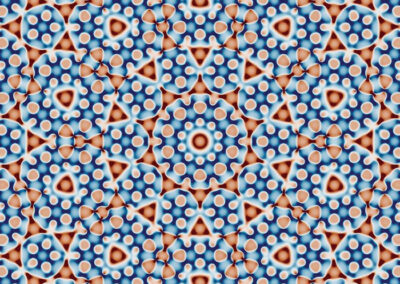London Centre for Nanotechnology (LCN) scientists captivated thousands of visitors with breakthrough research spanning quantum technologies, sustainable chemistry, and medical imaging at the Royal Society’s flagship public engagement event.
Scientists from the London Centre for Nanotechnology (LCN) took centre stage at the Royal Society Summer Science Exhibition 2025, showcasing transformative research that promises to revolutionise everything from clean energy to medical diagnosis. The week-long event, held from 1-6 July at the Royal Society’s historic Carlton House Terrace, attracted over 12,000 visitors including families, students, and policymakers with a special visit from Lord Vallance, Minister of State for Science, who stopped by to learn more about the groundbreaking work being carried out across the UK.
The UKRI funded programme grant CPLAS presented NanoGlow: lighting up a sustainable future, an interactive display demonstrating how light-matter interactions at the nanoscale could help shape a more sustainable future for chemistry. Led by Professor Anatoly Zayats at King’s College London, the project uses plasmo-catalysis – an emerging research area that has developed over the past two decades, that harnesses light to trigger chemical reactions through specially designed nanoparticles – to create more energy-efficient and environmentally friendly processes.
“The exhibition is a fantastic opportunity to show how fundamental research can lead to real-world impact,” said Professor Zayats. “NanoGlow is a window into how light-driven science can revolutionise the way we think about energy, materials, and the environment.”
Visitors were invited to experience the nanoscale world through ‘Spectral Ninja’ – a fast-paced computer game where participants competed to become the most energetic photon, making complex concepts accessible through playful interaction.
Another LCN-affiliated breakthrough on display was the ‘EntangleCam’, which uses quantum physics to capture infrared images with ordinary cameras. The technology works by linking pairs of light particles – when one particle interacts with an object in the infrared range, its “twin” particle carries that information back to a standard silicon camera that can detect it. This quantum solution could significantly reduce equipment costs while providing access to chemical information that infrared imaging reveals. Working with Digistain, researchers hope to commercialise this technology for cancer detection applications.
LCN researcher Maya Thanou from King’s College London was part of the ‘Extraordinary Ultrasound‘ exhibit, which demonstrated revolutionary applications of focused ultrasound therapy including non-invasive brain surgery, enhanced healing, and revolutionary drug delivery methods.
The exhibit showcased how ultrasound technology enables incisionless neurosurgery for treating movement disorders, smart drug delivery systems using cavitation streams, and ultrasonic tools that precisely cut and heal bones and other body tissues. Visitors could experience navigating using ultrasound like a bat with specially designed helmets and witness ultrasonic levitation of polystyrene beads.
LCN researchers at King’s Quantum researchers contributed to ‘The Quantum Zone’, a collaborative exhibit convened by the National Quantum Computing Centre to celebrate the International Year of Quantum Science and Technology. The zone showcased the latest quantum technologies in accessible ways, covering everything from basic quantum concepts to real-world applications in healthcare, climate science, and finance.
The Summer Science Exhibition, described as “a free six-day festival showcasing the science shaping our future,” provided LCN researchers with an unparalleled platform to connect with diverse audiences and demonstrate the real-world impact of their fundamental research.
The exhibition’s success highlights how LCN continues to lead in translating cutting-edge research into solutions for global challenges, from sustainable energy and environmental remediation to quantum technologies and advanced medical treatments. With research spanning multiple institutions including King’s College London, Imperial College London, and UCL, the London Centre for Nanotechnology remains at the forefront of interdisciplinary science that captures public imagination while addressing society’s most pressing needs.
The Royal Society Summer Science Exhibition has provided a unique opportunity for LCN researchers to demonstrate that nanotechnology and quantum science are not just laboratory curiosities, but powerful tools for building a better, more sustainable future.
For more information about LCN research and upcoming public engagement events, visit www.london-nano.com



